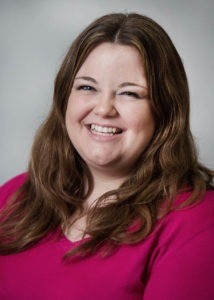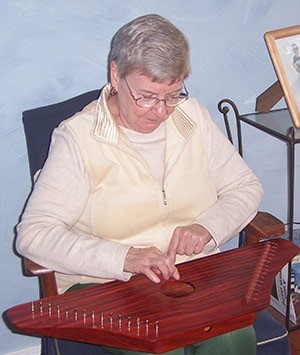By: Laura Micheli, MA, MT-BC
Music Touches People of All Ages
In my work I am fortunate to encounter many “magical musical moments” with so many different people.

I’d like to share one particular moment working with a group of seniors with dementia and Alzheimer’s disease. This particular group meets weekly for music therapy on the skilled nursing floor. There are 12 participants that join the group each week along with interchangeable staff members. The entire group, staff included, love the music therapy group! They sing the songs between sessions together, and have learned and utilized musical tools for specific individuals needs to support communication and positive behaviors. And it’s a mood booster for everyone!
One particular resident has had some great “magical musical moments” in the music therapy groups. She has later stage dementia and this has affected her communication abilities. She is generally very quiet, never initiates speech, and rarely answers questions verbally. Her peers notice her quiet nature. They say things like “Come on say something” or “She won’t tell you anything” and become frustrated by her lack of what they perceive as presence.
Music Can be Its Own Language
In our music therapy groups this woman is greeted by her peers in a supportive way because I, as the music therapist, model how we treat our peers of all abilities. Remarkably with music she can access her speech again. During one music therapy group I left a pause in the hello song I use every week where the lyric “beautiful” was supposed to be sung. She immediately sang  “beautiful” with just one pause. The other seniors smiled and cheered for her! From there she sang missing lyrics from all familiar songs and answered simple sung questions such as “How are you today?” Many of her peers commented after the session how wonderful it was that music could reach her in this way. Not only did she benefit from the musical stimuli but her peers saw her as a person again, something totally invaluable as a human being and especially as a human being with a disease such as dementia.
“beautiful” with just one pause. The other seniors smiled and cheered for her! From there she sang missing lyrics from all familiar songs and answered simple sung questions such as “How are you today?” Many of her peers commented after the session how wonderful it was that music could reach her in this way. Not only did she benefit from the musical stimuli but her peers saw her as a person again, something totally invaluable as a human being and especially as a human being with a disease such as dementia.
Her caregiver noticed such a difference in her when music was present that she purchased an iPod and asked me what music she should add to her playlists to help support and connect with her. Music is utilized throughout her day to connect with others and express herself. And this is just one reason why I love my job. I get to witness, experience, and create these amazing “magical music moments” that can change a life for the better.
If you are interested in learning more about how music therapy can benefit seniors, read more.
